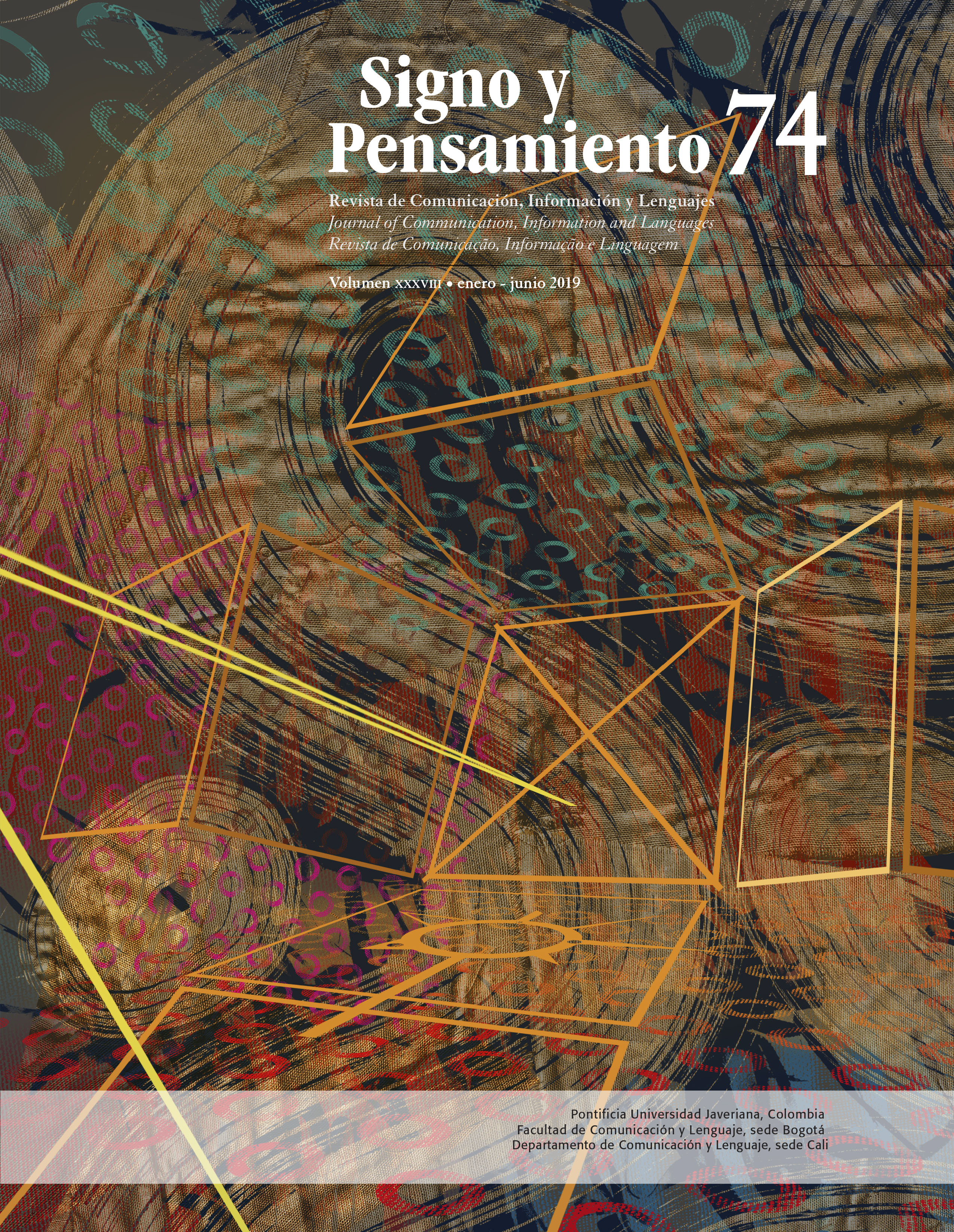Abstract
This article analyzes, from a linguistic-discursive perspective, the language behavior by the Venezuelan political leaders when producing messages in their Twitter accounts. Three hundred and fifty-six tweets were analyzed under a semantic and pragmatic approach and from the sociocognitive perspective of the critical discourse analysis. The results showed that: a) the revocatory referendum against President Nicolás Maduro and his Patria Plan were the most recurring topics, and b) the profusion of negative lexical units as well as linguistic actions of assertion and insult provided the standard of verbal offense defining the political discourse. It is concluded that the communicative intention of the leaders focused mostly on increasing the discursive contention rather than promoting a true peace dialogue in the Venezuelan political context.
Bolívar, A. (2008). “Cachorro de imperio” versus “Cachorro de Fidel”: los insultos en la política latinoamericana. Discurso & Sociedad, 2(1), 1-38. Recuperado de http://www.dissoc.org/ediciones/v02n01/DS2%281%29Bolivar.html
Calsamiglia, H., & Tusón, A. (1999). Las cosas del decir. Manual de análisis del discurso. Barcelona: Ariel.
Emol. Tecnología. (1 de junio de 2016). Gobiernos latinoamericanos son los más activos en la red social Twitter [en línea]. Recuperado de http://www.emol.com/noticias/Tecnologia/2016/06/01/805543/ Gobiernos-latinoamericanos-son-los-mas-activos-en-la-red-social-Twitter.html
Lara, T. (11 de marzo de 2012). Twitter y sus funciones comunicativas [Artículo en un blog]. Recuperado de http://tiscar.com/2012/03/11/twitter-y-sus-funciones-comunicativas/
Mancera Rueda, A., & Pano Alamán, A. (2013). Nuevas dinámicas discursivas en la comunicación política en Twitter. Círculo de Lingüística Aplicada a la Comunicación, 56, 53-80. https://doi.org/10.5209/rev_CLAC.2013.v56.43867
Martínez Martín, M. (2012). Redes sociales y política 2.0: Presencia en Twitter de los candidatos a las elecciones andaluzas de 2012 (Tesis de maestría inédita). Universidad de Sevilla, España. Recuperado de https://idus.us.es/xmlui/handle/11441/25473
Mazzuchino, M. G. (2017). Twitter como espacio (¿anti?) político: análisis discursivo de los tuits del presidente Mauricio Macri. Revista Latinoamericana de Estudios del Discurso, 17(2), 65-82. Recuperado de https://raled.comunidadaled.org/index.php/raled/article/view/247/248
Molero de Cabeza, L., & Cabeza, J. (2006). El análisis del discurso como método para la investigación en las ciencias humanas y sociales. En L. Molero de Cabeza & M. P. López (Eds.), El análisis del discurso en las ciencias humanas y sociales (pp. 13-42). Maracaibo, VE: LUZ- PDVSA.
Molero de Cabeza, L., & Cabeza, J. (2009). El poder, el querer y el protestar. Análisis sociolingüístico del discurso. Maracaibo, VE: Vicerrectorado Académico de la Universidad de Zulia.
Padilla, M. (2015). La argumentación política en Twitter. Discurso & Sociedad, 9(4), 419-444. Recuperado de http://www.dissoc.org/ediciones/v09n04/DS9(4)Padilla.pdf
Parra, M. (7 de agosto de 2016). Diosdado Cabello ejerce rol de jerarca entre los más radicales del chavismo. Versión Final [en línea]. Recuperado de versionfinal.com.ve/politica-dinero/diosdado-cabello-ejerce-rol-de-jerarca-entre-los-mas-radicales-del-chavismo/
Pottier, B. (1992). Teoría y análisis en lingüística. Madrid: Gredos.
Romero-Castillo, E. (8 de septiembre de 2016). La crisis venezolana III (JUL – SEP 2016). DW Made for minds [en línea]. Recuperado de www.dw.com/es/la-crisis-venezolana-iii-jul-sep-2016/a-19536792 twven.com.
Twitteros en Venezuela. (2016). Ranking de Twitteros más seguidos en Venezuela (1 al 50) #twven. Recuperado de http://twven.com/r/top-50/
Van Dijk, T. (1999). Ideología. Barcelona: Gedisa.
Van Dijk, T. (2008). Semántica del discurso e ideología. Discurso & Sociedad, 2(1), 201-261. Recuperado de http://www.dissoc.org/ediciones/v02n01/20Dijk.pdf
Van Dijk, T. (2016). Estudios críticos del discurso: un enfoque sociocognitivo. Discurso & Sociedad, 10(1), 137-162. Recuperado de http://www.dissoc.org/ediciones/v10n01/DS10%281%29Van%20Dijk.html
Ventura, A. S. (2016). Argumentación y discurso político en Twitter. Análisis de la campaña presidencial Argentina 2011. Aposta. Revista de Ciencias Sociales, 69, 39-66. Recuperado de http://www.redalyc.org/articulo.oa?id=495952431003
This journal is registered under a Creative Commons Attribution 4.0 International Public License. Thus, this work may be reproduced, distributed, and publicly shared in digital format, as long as the names of the authors and Pontificia Universidad Javeriana are acknowledged. Others are allowed to quote, adapt, transform, auto-archive, republish, and create based on this material, for any purpose (even commercial ones), provided the authorship is duly acknowledged, a link to the original work is provided, and it is specified if changes have been made. Pontificia Universidad Javeriana does not hold the rights of published works and the authors are solely responsible for the contents of their works; they keep the moral, intellectual, privacy, and publicity rights.
Approving the intervention of the work (review, copy-editing, translation, layout) and the following outreach, are granted through an use license and not through an assignment of rights. This means the journal and Pontificia Universidad Javeriana cannot be held responsible for any ethical malpractice by the authors. As a consequence of the protection granted by the use license, the journal is not required to publish recantations or modify information already published, unless the errata stems from the editorial management process. Publishing contents in this journal does not generate royalties for contributors.



